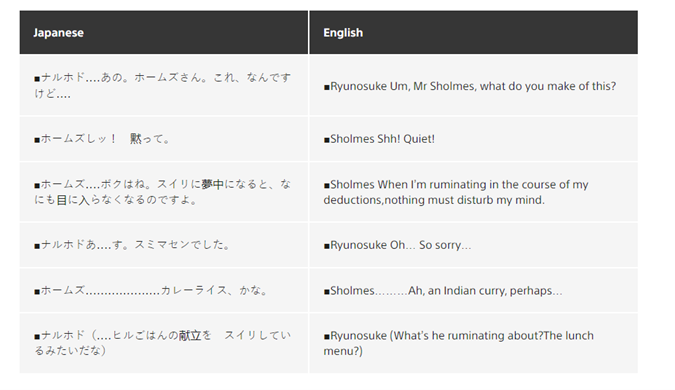Do You Need to Be a Gamer to Translate Video Game Copy?
|
Font size:
Video games come in various shapes and forms, each with its own particularities and subtleties. Some test your strategic thinking and problem-solving skills, while others focus on immersive storytelling and character development. And then, there’s games that do both.
A little background on the emergence of game localization
For a seamlessly endless time in history, most video games would only be released in either English or Japanese. This brought about a slight problem for the industry: gamers from all around the world wanted to play their favourite games in their own language too and were pretty adamant about it! Thus, the need to appeal to a Western audience suddenly earned the top spot in most game developers’ agendas.
This escalating demand led to the creation of thousands of video game dubs and game translations. However, the major cultural gap between the Western and Eastern societies made it clear that game developers had to do far more than just translation if their goal was to see foreign gamers fall in love with their games – they had to adapt them to the target culture. A notable video game example that has been localized through and through is no other than Phoenix Wright: Ace Attorney.
Phoenix Wright: Ace Attorney’s game translators really knew what they were doing
The original version of Phoenix Wright: Ace Attorney, the much-loved prequel spin-off of the Ace Attorney series, was rife with historical references from Japanese history and culture. This posed a major challenge for game translators, since transforming those references for English-speaking audiences would require tremendous market research, extensive game localization expertise, and plenty of good ol’ creativity.
Nevertheless, the English version was perfectly adapted for the US locale and ultimately attained widespread acclaim amongst its target demographic. To understand what made this game such a cultural phenomenon, consider this example from the game’s dialogue:

In the Japanese version, Sholmes is guessing he’ll probably have rice curry for lunch. But, as most gamers from the US would know, rice curry is unique to Japanese cuisine. Therefore, the localizers had to find a way to “adapt” the dish to the Western mindset. How did they end up choosing Indian curry instead?
Turns out it was the British that brought Indian curry to Japan, back in the 19th century. The dish was adapted into the Japanese signature dish it is today only a few decades later, following its adoption by the Japanese army and navy in the 20th century.
Ultimately, Japanese players reading that line will automatically assume that it’s a reference to a non-Japanese dish, which, in their mind, will be “Indian”. On the other hand, it’d be near impossible for an English-speaking gamer who doesn’t know the cultural context to grasp why Sholmes, an established Englishman, would suddenly start ruminating about rice curry (since the game’s English version is US-based). Hence, for clarity’s sake, the game translators chose to refer to the original Indian curry, rather than the rice curry mentioned in the game’s Japanese version.
This sample perfectly captures how a video game translator can localize a game with intent, while retaining both the story and character’s originality. As the Localization Director at Capcom, Janet Hsu, very well puts it, behind every localization choice hides intent, need, and expectation… the locale’s cultural and linguistic expectation, of course.
Why knowing slang makes a major difference – the case of Cyberpunk 2077
We have spoken about the Russian localization blunders of Cyberpunk in a previous article; we will not reiterate them. What we want to highlight in this article is why it went wrong. Was it perhaps because the translator was not a gamer?
In the case of Cyberpunk 2077, that was likely true indeed. Replete with gang slang like “choom” or “gonk”, the game has racked the brains of dozens of video game localizers. These terms are used to describe certain moods, and it is up to the translator to be creative to convey their meaning and intent. To decipher these, we need to dig deeper into Cyberpunk’s development history.
Lest we forget, Cyberpunk’s developer and designer is Mike Pondsmith, a notorious African American game designer and a science fiction lover. A lot (if not most) of the language in his game is street slang used to depict a world of divisive racism and corporations forever at war. Working closely with CD Projekt Red might lead us to think he thought of “choom” as some sort of gang-style sweet talk like “bro”, “dude”, “man”, “bud”, or “mate” for the Brits. So, you guessed it, “choom” means friend.
In contrast, “gonk” means “idiot” or “fool”. This one is a real one, even! Chiefly British, though. LoL.
So, do you have to have a kinky “street life” to be a video game translator or localizer? Um… No, not really. You just have to be a gamer to sense all the techy nuances of the game itself. And, let’s face it, the Cyberpunk series is a cornucopia of those. See for yourself (if you haven’t already):
●Apogee: The greatest. Here’s another real English word made popular by the space-travelling Highriders.
●Borg: Cyborg. Used to “label” those undergoing multiple cybernetic surgeries in Night City.
●Bourgy: Low class. An abbreviation of “bourgeois”, it’s a fun, mocking name, like “bougie” in spoken English today.
●Chippin’ In: To insert a chip and generally install cyberware.
●Culture Vulture: Entertainment journalist. In our earthly world, it’s an ironic label for someone who is ridiculously obsessed with arts and artefacts. However, in the dystopian world of Cyberpunk, culture vultures are reporters chasing ambulances and living off publicising tragedies. Whops! 🤦
●Dock: Sexual intercourse, especially a casual hookup. Now that’s a spicy one. Who would’ve thought? 👄
●Dorph: Endorphins; a synthetically engineered endorphin. In Night City, hackers use Dorphs to enhance their performance. 🤣
●Dorpher or Dorphead: Those who take Dorphs, or shall we call them Dorph addicts? Well, in the cyber world of these punks, there are two kinds of Dorphers: Dorphers – those who consume Dorphs and Dorph pushers – those who…. 🤣🤣🤣
●Fixer: Dealmaker. This is a “live” and used word today. In Cyberpunk, it is associated with crime.
●The Edge: The suburbs, the outskirts, the ghetto, think of it as the dark side of town, almost Sin City-like.
●Edgerunner: One who lives on the Edge and at the edge of the city. It also carries a powerful connotation of “honour” and even “vocation”, “calling” of someone who gets things done by outsmarting the law. Dodgers? Maybe not dodgers, dodgers, but close enough. 😉
●Eddies: Money. After all, money makes the world go round in Night City and real life. The EUR/USD currency pair is often referred to as Eurodollar in the US and EDS for short. So, that’s not so far away, is it?
●Gato: Cool, a loanword (or a calque) of the Spanish word for cat. It means “cool cat”, even in Cyberpunk. Meow! 🐈
We could speak about the rich vocabulary of Cyberpunk forever and the day and still not finish. So, we will rest our linguistic case here. But one thing is certain. More than enough ink has been spilt on the topic of this game’s localization, the reason being the game itself. A translator with no gaming inclinations will never be able to capture and convey all the “juice”.
Localization is key to video game popularity. When done right, not only does it bring the game in front of players worldwide, but it also creates an immersive experience like The Ace Attorney. Have a game you want the whole world to play? Fill in the form below and find out how we at Pangea Global can make your game immersive in 70+ languages.













